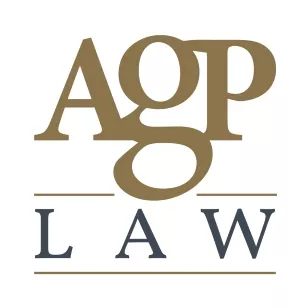- within Accounting and Audit, Technology and Strategy topic(s)
- with Senior Company Executives and HR
Cyprus' commitment to the common law may result in a major potential position for settling patent disputes now that Britain has voted for Brexit.
Cyprus may not have a solid tradition of patent litigation disputes; however, it has a robust legal framework for the protection of Intellectual Property (IP), through national laws as well as international treaties that have been ratified domestically. Due to this, Cyprus has recently attracted the consideration as to whether it can become a major performer in major patent disputes in Europe.
Cyprus is considered to be one of the very few common law jurisdictions in the European Union and having that in mind, Brexit may be the major reason behind the interest of establishment of the Cypriot legal system. In general, the major key legislation that Cyprus follows for the settlement of patent disputes is The Patent Law of 1998 and such dispute rulings are processed and settled by the Supreme Court of Justice in Cyprus.
Infringement proceedings
Just like any European jurisdiction, the proprietor of an appropriately registered patent, either domestic or European, is entitled to file an action against any patent infringer. The following cases in Cyprus that arise without the consent of the owner of a patent are considered infringement:
- In case of a patent for a product: The infringement of the manufacture, offering or placing on the market of a product incorporating the intervention or the use, import or stocking of such product for such offering or the positioning on the market for such use and lastly inducing a third party to perform any of these acts;
- In case of a patent for a process: The infringement for using the procedure which forms the subject matter of the patent and the offering, placing on the market or direct use of a product resulting from the application of the patented method, and the import or stocking of such product for such offering or positioning on the market or for such use even when a patent cannot be acquired for such product and finally inducing third parties to execute any of these acts. Nonetheless, 'imminent infringement' allows the proprietor of the patent to execute the same rights against any person who has committed or is committing any acts which makes possible for such an infringement to occur.
Furthermore, 'contributory infringement' clarifies that supplying or offering to supply any third party who is not permitted to take advantage of the patented intervention with means relating to an element of the patented intervention and for exclusively carrying out the intervention is an infringement if the supplier or provider is aware, informed or the circumstances make it obvious, that these means are destined for carrying out the intervention.
In this situation, the Supreme Court may, as appropriate, award damages and an order to avoid further infringement. To be specific, the Supreme Court may order the offender not to repeat the infringement in future considerations. In cases where infringement has not yet taken place, but is verified that it will most likely occur, an injunction to prevent such matter may be acquired. In such actions, the defendant may appeal the revocation of the patent as a counter claim, given that the requirements below are met.
Revocation proceedings
Regarding the revocation proceedings, any person may request from the Supreme Court the termination of a patent. Such action is accessible for both domestic and European patents given that Article 2 of the European Patent Convention specifies that a European patent shall have the effect of and be subject to the same provisions as a national patent authorised by that contracting state. Nonetheless, an application for the termination of a patent may be based on any of the following reasons:
- The subject matter of the patent was not a novel, or was not patentable for any other reason; or
- Insufficient disclosure of the invention occurred; or
- The person to whom the patent was granted was not entitled to it.
In relation to the first reason, the Patent Law offers additional guidance as to whether the subject matter of the patent was not a novel or was not patentable for any other reason. Yet, the Patent Law specifies that an invention may not be patentable unless it is a novel, involves an inventive step and is subject of industrial application, while it requires that an invention is deemed as a novel when it is not a part of the 'prior art'. Prior art is considered anything, which prior to the date of registration or prior to the priority date in the case where priority of the application for the intervention is obtained, it has been made accessible to the public in writing or in any other written form, in a written description or by using it or in any other way anywhere in the world.
The Patent Law furtherly determines that an invention shall be considered to include an inventive step if in the belief of the expert it does not occur in an obvious manner from the existing state of the art. Lastly, it is stipulated that an intervention is deemed to be susceptible of industrial application if it can be created or utilized in any sector of industry.
Non-infringement declaration
Last, but not least, the law stipulates that any interested
person may request a declaration to the Supreme Court that the
doing of a certain action does not infringe upon a specific patent.
In this instance, the proprietor of the patent must notify all
licensees of the proceedings, and the licensees may then join in
the proceedings unless the licence agreement does not allow
this.
The non-infringement declaration will be permitted if the person
carrying the proceedings verifies that the action involved does not
constitute an infringement of the patent. Proceedings for a
non-infringement declaration may be established together with the
proceedings for the revocation of the patent, but proceedings for a
non-infringement declaration may not be established by a defendant
in infringement proceedings concerning the act involved.
Having mentioned all the above, Cyprus may play a vital role in patent litigation disputes, given the common law background of Cyprus, as per The Court of Justice Law of 1960, the proximity of the Patent Law with the corresponding English legal framework of patent protection and the relevant English case-law as well as other common law legal authorities. The effective nature of English case-law combined with the preciseness of common law may turn a fairly unknown setting for patent litigation into a major European jurisdiction on this front.
The content of this article is intended to provide a general guide to the subject matter. Specialist advice should be sought about your specific circumstances.



